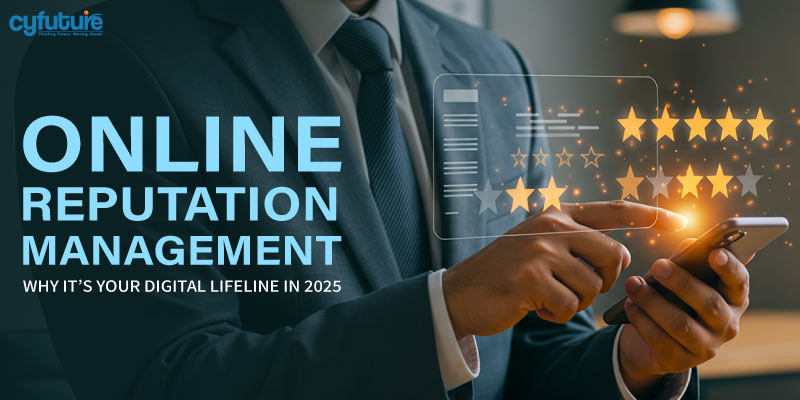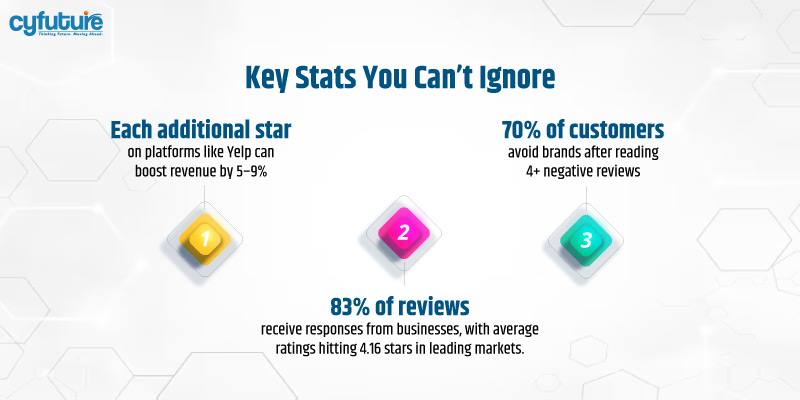-
Get Cloud GPU Server - Register Now!
Toggle navigation

In today’s hyper-connected digital world, a brand’s reputation isn’t just a part of the business—it is the business. With consumers making decisions based on what they find online, online reputation management (ORM) has become a mission-critical function for businesses of all sizes. As we venture further into 2025, where digital footprints dictate credibility and trust, managing your online reputation is no longer optional—it’s your digital lifeline.
This blog explores the rising significance of online reputation management in 2025, why it’s more important than ever, and how businesses can strategically leverage it to thrive in a competitive landscape.
Online reputation management is the practice of monitoring, influencing, and improving how your brand is perceived online. It involves tracking mentions, reviews, social media chatter, search engine results, and more to ensure your digital image aligns with your values and business goals.
The core elements of ORM include:
Whether you’re a startup or an enterprise, your digital reputation determines how customers, investors, and even potential employees view you.
In 2025, your online presence often precedes any in-person interaction. Whether it’s a Google search, a LinkedIn profile, or a Glassdoor review, people form opinions about your brand before you even know they’re looking.
A single negative review or a poor social media response can cause a ripple effect, leading to lost business opportunities, talent drain, or decreased investor confidence. That’s why online reputation management is essential—it allows you to control the narrative.
Search engines in 2025 are far more advanced in understanding context, sentiment, and user intent. AI-driven algorithms surface relevant reviews, news articles, and social signals higher than ever. If your brand has unresolved negative sentiment or poor ratings, it will likely show up first—and hurt your credibility.
ORM strategies today must be adaptive to these intelligent algorithms, ensuring your best content and customer experiences dominate the digital space.
Modern consumers are not just price-sensitive; they are trust-sensitive. Before purchasing a product, 93% of consumers check online reviews, testimonials, and social proof. In 2025, with the rise of AI-generated reviews, bots, and deepfakes, trust is more fragile—and more valuable—than ever.
Effective online reputation management ensures that authentic, positive experiences shine through the noise, fostering long-term customer loyalty.
Let’s break down how your digital reputation directly affects your bottom line.

In short, reputation can be your greatest asset—or your greatest liability.
In the always-on digital world of 2025, real-time ORM tools are essential. Brands are using AI-driven platforms to monitor mentions across the web and respond within minutes, not days. This immediacy shows consumers that you’re attentive and care about their concerns.
Sentiment analysis is no longer just about flagging negative reviews. Advanced AI now evaluates tone, emotion, and influence, helping brands prioritize responses and identify brand advocates or potential threats.
With short-form video platforms dominating attention spans, your brand’s reputation now includes how influencers and creators portray you. Partnering with the right influencers—and monitoring the wrong ones—is a critical part of online reputation management in 2025.
Deepfakes and AI-generated misinformation pose new threats to brand reputation. Leading ORM strategies now involve fact-checking tools and blockchain-based content verification to ensure your brand is protected from manipulation.
ORM today goes beyond Google and Yelp. It spans:
A multi-platform approach is non-negotiable for comprehensive online reputation management.
While the foundational principles of ORM are the same, the scale and tactics differ:
Regardless of size, every business must treat online reputation management as a core strategic function in 2025.
At Cyfuture, we understand that your digital reputation is your currency in the modern marketplace. Our online reputation management solutions are built to empower your brand, protect your credibility, and drive growth across platforms.
Whether you’re a startup navigating your first viral tweet or an enterprise managing millions of impressions daily, we tailor our ORM strategies to your unique needs and goals.
Here are actionable steps every business should take this year:
Ensure you own and verify your profiles on Google Business, Yelp, LinkedIn, Trustpilot, and relevant industry platforms.
Encourage satisfied customers to leave reviews. Make it easy and guide them to the right platforms.
A polite, empathetic, and solution-focused response to criticism can turn detractors into advocates.
Create blogs, case studies, testimonials, and videos that reinforce your expertise and trustworthiness.
Use tools like Google Alerts, Brand24, or Cyfuture’s ORM dashboard to stay ahead of conversations.
Don’t just post—respond, interact, and humanize your brand to build deeper connections.
In early 2024, a mid-sized online retailer approached Cyfuture after a viral tweet accused them of unethical sourcing. Within 48 hours, their Google ratings dropped by 1.2 stars and their conversion rate plummeted 35%.
Through our comprehensive ORM plan, we:
By Q3 2024, not only had the brand fully recovered, but its customer sentiment and NPS score were higher than before.
Lesson: Reputation management isn’t about damage control—it’s about reputation empowerment.
As we look toward 2026 and beyond, ORM will become more automated, predictive, and integrated into overall brand strategies. Expect innovations like:
But even as technology evolves, the heart of ORM remains human: building trust, showing empathy, and creating authentic connections.
In 2025, online reputation management is not just a protective shield—it’s a competitive edge. Brands that proactively manage their digital presence will lead industries, earn loyal customers, and weather any digital storm.
Your reputation is your promise to the world. Make it count.
At Cyfuture, we’re here to ensure your promise is seen, heard, and believed—loud and clear.